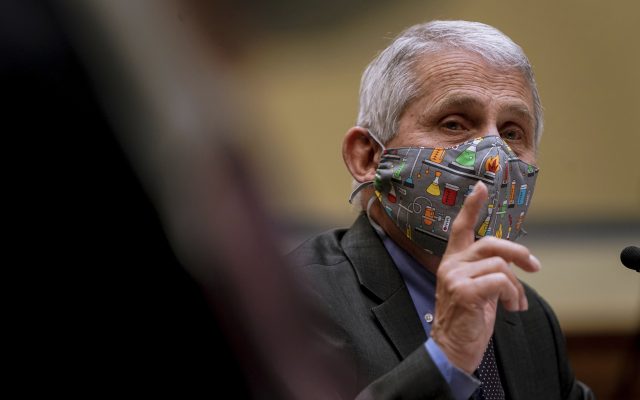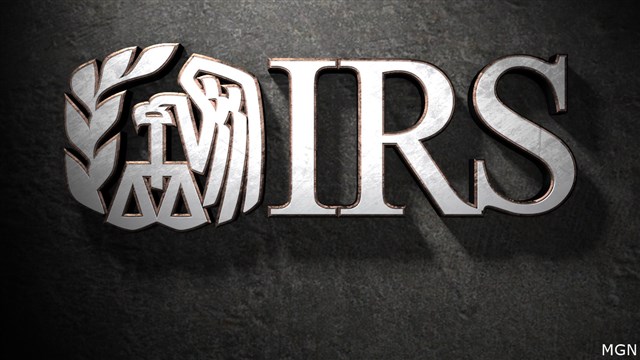Dr. Fauci: Be sure to get 2nd dose of vaccines

By The Associated Press undefined
WASHINGTON — About 8% of Americans who have received one dose of either the Pfizer or Moderna COVID-19 vaccines have not returned for their second shot.
That’s according to Dr. Antony Fauci, the nation’s top infectious disease expert. He says it is important for those getting one of the two-dose vaccines to complete their course to gain maximum protection against the virus.
Speaking during a White House briefing, he pointed to several scientific studies showing significant benefits of the second shot, including reducing the risk of infection and strengthening the response of the immune system to the virus.
Says Fauci: “Get vaccinated, and if you’re getting a two-dose regimen, make sure you get that second dose.”
___
Follow more of AP’s pandemic coverage at https://apnews.com/hub/coronavirus-pandemic and https://apnews.com/hub/coronavirus-vaccine
___
HERE’S WHAT ELSE IS HAPPENING:
ANKARA, Turkey — Turkish authorities have granted Russia’s Sputnik V vaccine approval for its emergency use in Turkey, Health Minister Fahrettin Koca announced Friday.
Koca said on Twitter the Turkish Pharmaceuticals and Medical Devices Agency approved the vaccine’s emergency use following its “examinations and evaluations,” paving the way for use alongside Sinovac and the Pfizer vaccines.
It was not known when the country will begin administering the vaccine. Koca said this week Turkey would receive 50 million doses of the Sputnik V shots within the next six months.
Russian Direct Investment Fund recently signed an agreement with Turkish biopharmaceutical company Viscoran Ilac to begin producing its Sputnik V vaccine in Turkey. Viscoran aims to start production in the coming months in several facilities, the company said.
Turkey, a nation of 84 million, says it has administered some 22.8 million doses since it rolled out its vaccination program in mid-January. About 9 million people have been fully vaccinated.
___
SINGAPORE — Singapore says it will tighten its borders by banning visitors from four more South Asian nations and bolster social distancing measures to contain an uptick in coronavirus cases.
The health ministry says foreigners with recent travel history to Bangladesh, Nepal, Pakistan and Sri Lanka cannot enter or transit through Singapore starting Sunday. This month, it also banned travelers from India.
Starting Saturday, the number of visitors to malls and public attractions will be further reduced for two weeks. People are urged to limit their social interactions to two a day.
Singapore controlled the pandemic after an outbreak last year among foreign workers living in cramped dormitories. But new infections have been creeping up, stemming from a foreign worker dormitory and its first hospital cluster. The health ministry Friday reported 24 new cases, taking the country’s confirmed total to 61,145.
The rise in infection comes as Singapore prepares for air travel with Hong Kong in late May.
___
MADRID — Spain is extending the gap between two coronavirus vaccine doses from 12 to 16 weeks for the nearly 2 million people under 60 who have already received a first shot of AstraZeneca.
The delay will give researchers in Spain’s Carlos III Health Institute time to study the effects of mixing vaccines from different manufacturers as they look for an alternative dose following very rare instances of brain blood clots linked to the shot.
Spain had started administering the AstraZeneca vaccine developed by the Anglo-Swedish pharmaceutical giant to essential workers before restricting its use to those over 60 because of the clots. Health experts say the risk with the vaccine is less than the clot risk healthy women face while on birth control.
A total of 400 people who received one AstraZeneca shot were given a second dose of the Pfizer shot until Thursday. Some 200 more people involved in the study for an alternative have been recruited for the trial’s control group, health authorities said Friday.
Authorities reminded the public that one sole dose of the AstraZeneca jab provides an 80% level of protection. The ministry also says health experts are paying attention to the studies and experience of other countries in a similar situation.
___
NEW DELHI — India has set another global record with 386,452 daily coronavirus cases.
The Health Ministry on Friday also reported 3,498 deaths in the last 24 hours, bringing the total to 208,330. Experts believe both figures are an undercount, but it’s unclear by how much.
India’s pandemic response has been marred by insufficient data. An online appeal — signed by over 350 scientists Friday afternoon — asks the government to release data about the sequencing of virus variants, testing, recovered patients and how people were responding to vaccines.
The appeal says the “granular” data on testing was inaccessible to non-government experts and some government experts too.
India has set a daily global record for more than a week with an average of nearly 350,000 infections. Daily deaths have nearly tripled in the past three weeks, reflecting the intensity of the latest surge.
India has reported more than 18.7 million cases since the start of the pandemic, second only to the United States. Globally, total deaths rank fourth.
___
TOKYO — A Japanese cruise ship operator says a passenger on its “Asuka II” ship has tested positive for the coronavirus, causing it to return to its home port of Yokohama, near Tokyo.
The infected passenger is in stable condition and resting in a cabin that’s been isolated, the operator, Nippon Yusen, said in a statement. The infected passenger was traveling with just one companion and other passengers didn’t have close contact, according to Yokohama City officials.
All the passengers had tested negative before the trip. But results of tests conducted at Thursday’s boarding were available the next day, when the tour already has begun, Nippon Yusen said. The ship on a domestic tour departed Yokohama on Thursday and was headed to Aomori and Hokkaido in northern Japan.
All facilities on the ship have been closed and all passengers are asked to stay in their cabins, the operator said.
The case is a reminder of an outbreak on a luxury cruise ship Diamond Princess, where more than 700 of its 3,700 passengers got infected during a two-week quarantine on board at the Yokohama port. Thirteen people died.
Overall, Japan has totaled more than 580,000 confirmed cases and 10,200 confirmed deaths. Tokyo and three other metropolitan areas are currently under a state of emergency because of a surge of infections.
___
Pfizer and BioNTech have submitted a request for European Union drug regulators to extend the approval of the companies’ coronavirus vaccine to include children ages 12 to 15, a move that could offer younger and less at-risk populations in Europe access to the shots for the first time.
In a statement on Friday, the two companies said their submission to the European Medicines Agency was based on an advanced study in more than 2,000 adolescents that showed the vaccine to be safe and effective. The children will continue to be monitored for longer-term protection and safety for another two years.
BioNTech and Pfizer previously had requested their emergency use authorization with the U.S. Food and Drug Administration also be extended to children 12-15.
The COVID-19 vaccine made by Pfizer and BioNTech was the first one to be granted a greenlight by the EMA in December, when it was licensed for anyone age 16 and over across the 27-nation EU.
___
MADRID — Spanish health authorities say they have started giving Pfizer-BioNTech vaccine doses to participants in a government-led study involving young people who received a first dose of the AstraZeneca COVID-19 vaccine.
Researchers from Spain’s Carlos III Institute want to study the effects of mixing vaccines from different manufacturers as they look for a second dose alternative following very rare brain blood clots linked to the vaccine produced by AstraZeneca.
Experts say the risks of the British=Swedish pharmaceutical company’s vaccine are less than the clot risk healthy women face while on birth control.
A total of 400 people were given the Pfizer-BioNTech vaccine for their second dose until Thursday, Spain’s Health Ministry said Friday, while 200 other people have been recruited as part of the study’s control group.
Five major hospitals across Spain are involved, and results are expected in mid-May.
There are about 2 million people under age 60 who received a first shot of the AstraZeneca vaccine before Spanish authorities halted its use in that age group.
Individuals who received their first dose on Feb. 8 should receive a second dose by May 8, according to the vaccine manufacturer’s recommendation. Authorities say that delaying the second shot is safe.
___
ISLAMABAD — Pakistan’s minister for planning and development warned his countrymen Friday that the number of critically ill COVID-19 patients is rapidly increasing and the next few weeks will be critical for the impoverished Islamic nation.
Asad Umar, who oversees Pakistan’s response to the coronavirus, said as many as 5,360 patients with COVID-19 were on oxygen support at hospitals. That is 57% more than the number of COVID-19 patients who were critically ill during Pakistan’s previous outbreak peak in June, he said.
Umar tweeted that Pakistan has managed the situation but “no system can cope if we allow the disease to spread rapidly”.
Pakistan on Friday reported more than 5,000 new confirmed cases and 131 virus-related deaths in 24 hours. Since last year, Pakistan has reported 17,680 deaths among 815,711 confirmed cases
The government earlier this week deployed troops in high-risk cities to stop people from violating social distancing rules.
Pakistani Prime Minister Imran Khan has said he will be forced to impose a lockdown if the positivity rate does not decrease.
___
LISBON, Portugal — Residents of Portugal will be able to go to cinemas, stores and restaurants on Saturday night as the country continues its gradual easing of a prolonged COVID-19 lockdown.
The land border with neighboring Spain will also reopen from Saturday after closing to non-essential travel in January, when Portugal was the country hit worst by the pandemic in the world by size of population.
Limits on indoor seating capacity at restaurants and cafes will remain from Saturday onward, however. The wearing of face masks is also mandatory, if social distancing is not possible, as is working from home.
Portugal’s virus incidence rate per 100,000 population over 14 days — a key pandemic measure — has fallen to 67 from 1,628 at the end of January.
Intensive care units in the country of 10.3 million people were treating more than 900 patients in early February, but now are looking after 88.
___
BUDAPEST — Hungary will loosen several COVID-19 pandemic restrictions for holders of a government-issued immunity card in the latest round of reopenings that the government has tied to the number of administered vaccines.
Beginning Saturday morning, card holders may access indoor dining rooms, hotels, theaters, cinemas, spas, gyms, libraries, museums and other recreational venues. Opening hours for businesses will also be extended to 11 p.m., and the start of an overnight curfew in place since November will be extended until midnight.
Prime Minister Viktor Orban says the reopening comes as Hungary reaches 4 million first-dose vaccinations, representing about 40% of the population.
“In the past, we defended ourselves by closing, thereby slowing the spread of the virus. But now we are on the attack,” he said. “The vaccine is like a bulletproof vest, the virus bounces off of it.”
Hungary is the only country in the European Union to use vaccines from China and Russia in addition to Western jabs. It has the second highest vaccination rate in the EU, but a devastating pandemic surge in the spring has given it the highest total death rate per 1 million inhabitants in the world, according to Johns Hopkins University.
___
ROME — Italy is nearing its goal of administering a half-million COVID-19 vaccines a day.
Premier Mario Draghi’s office said early Friday that provisional data indicates some 497,993 doses were administered on Thursday, a daily record.
Italy’s vaccine czar has aimed to have at least 500,000 shots administered per day by the end of April, to reach the goal of inoculating 80% of the population by September. Italy was the one-time epicenter of the outbreak in Europe and still has the world’s sixth highest confirmed death toll at 120,544, second only to Britain in Europe.
The vaccination campaign got off to a slow start because of delivery delays, logistical hiccups and organizational decisions that didn’t fully prioritize Italy’s oldest and most vulnerable residents. Some 300 people are still dying each day.
But the campaign has accelerated in recent weeks and to date some 19.4 million doses have been administered, with 5.75 million people receiving both jabs, according to Health Ministry data.
___
PARIS — France has announced its first confirmed cases of the virus variant that is sweeping over India, just as the French president outlined a national reopening plan after six months of virus restrictions.
The Health Ministry announced late Thursday night that three people tested positive for the new variant in the Bouches-du-Rhone and Lot et Garonne regions of southern France. All three had traveled to India, and are under medical observation.
Authorities are seeking to trace their contacts and investigating other suspected cases, the ministry said. It noted that the variant has been detected in at least six other European countries.
France last week stepped up virus controls for travelers arriving from India as well as some other countries where variants are spreading.
The announcement came as French President Emmanuel Macron laid out a four-stage reopening process aimed at boosting the economy, welcoming back tourists and lifting nearly all of France’s virus restrictions by June 30.
The vast majority of France’s virus cases now involve the more contagious, more dangerous variant first identified in Britain. France has reported one of the worlds highest virus death tolls, at more than 103,000 deaths.
___
SAN JOSE, Costa Rica — A record surge in COVID-19 infections in Costa Rica forced the government to announce new restrictions Thursday that will dial back the country’s economic reopening.
Health Minister Daniel Salas said that in the prior 24-hour period, Costa Rica had tallied 2,781 new infections, the highest daily total since the country’s first case was confirmed in March 2020. Fifteen people died of COVID-19 during the same period.
“Non-essential” businesses in central Costa Rica, including the capital, were told to close and stronger sanctions were announced for businesses violating reduced capacity rules for their venues.
The rapid increase in infections has stressed the country’s public health system. The intensive care units of public hospitals had reached 94% of their capacity.
Costa Rica will however continue in-person learning. Salas said that while infections had been identified at schools the vast majority were isolated and in total that represented only 6% of the country’s schools.
Costa Rica has confirmed more than 248,000 COVID-19 infections and more than 3,200 deaths.
___
SAO PAULO, Brazil — Brazil on Thursday became the second country to officially top 400,000 COVID-19 deaths, losing another 100,000 lives in just one month, as some health experts warn there may be gruesome days ahead when the Southern Hemisphere enters winter.
April was Brazil’s deadliest month of the pandemic, with thousands of people losing their lives daily at crowded hospitals.
The country’s Health Ministry registered more than 4,000 deaths on two days early in the month, and its seven-day average topped out at above 3,100. That figure has tilted downward in the last two weeks, to less than 2,400 deaths per day, though on Thursday the Health Ministry announced another 3,001 deaths, bring Brazil’s total to 401,186.
Local health experts have celebrated the recent decline of cases and deaths, plus the eased pressure on the Brazilian health care system — but only modestly. They are apprehensive of another wave of the disease, like those seen in some European nations, due to a premature resumption of activity in states and cities combined with slow vaccination rollout.
___
TRENTON, N.J. — Pfizer says it will soon start shipping its two-dose COVID-19 vaccine in smaller packages meant to better suit U.S. clinics, pharmacies and other medical providers in remote and rural areas.
The new package holds 25 vials with six doses each, for a total of 150 doses. Pfizer’s boxes now contain trays of 195 vials with nearly 1,200 doses.
“In the U.S., we’re progressing away from mass vaccination, so the smaller package size would be helpful,” Tanya Alcorn, Pfizer’s head of supply chain, told The Associated Press on Thursday.
The company will begin shipping vaccines in the smaller packages in the U.S. at the end of May. In other countries scaling up their vaccination campaigns, Pfizer will continue shipping the larger boxes, Alcorn said.
The drugmaker also is working on new vaccine formulations for easier distribution, including one designed to remain stable for months in powder form.
___
MEXICO CITY — A study suggests that as many as one-third of Mexicans may have been exposed to the coronavirus by the end of last year.
Coronavirus antibodies were found in 33.5% of samples from blood banks and medical laboratory tests in Mexico unrelated to COVID-19. The random samples were taken between February and December 2020.
The levels varied according to regions. The highest exposure rate was found in the northwest, from Baja California to Chihuahua, at 40.7%. The lowest came in western states, at 26.6%.
In general, areas along the U.S. border had higher rates.
Victor Borja of the Mexican Social Security Institute says the nationwide average may have risen as much as 10 percentage points following a steep rise in cases in January.
But even if the exposure rate is currently as much as 43.5%, Borja stresses that the country is still far from herd immunity.
___
You Might Also Like






